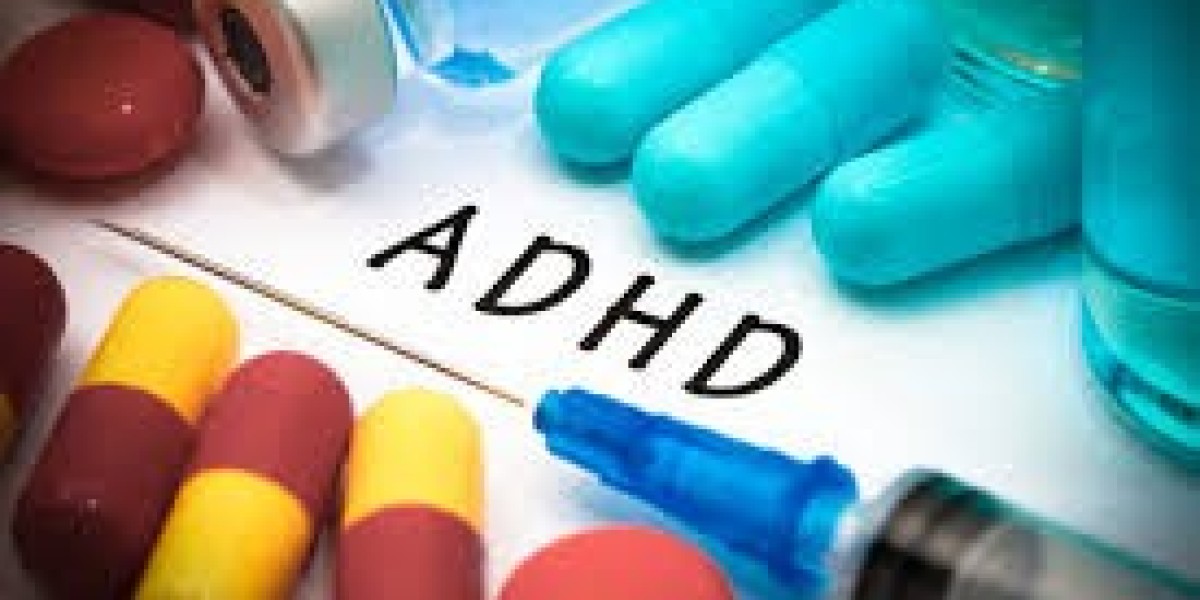Attention Deficit Hyperactivity Disorder (ADHD) is a neurological condition affecting both children and adults. Characterized by inattention, impulsivity, and hyperactivity, ADHD can significantly impact a person’s ability to function in daily life. However, medical science has made remarkable progress in recent years, introducing innovative medications and treatment options that offer better symptom control, fewer side effects, and improved quality of life.
This article explores the latest advances in ADHD medications and alternative treatment options, helping patients, parents, and caregivers stay informed and empowered.
Understanding ADHD and Its Challenges
ADHD affects approximately 5-10% of children and 2.5-4% of adults globally. Though traditionally managed with stimulant medications like Adderall or Ritalin, not every individual responds the same way. Side effects such as insomnia, anxiety, or loss of appetite have driven the demand for newer, more balanced approaches.
As our understanding of ADHD evolves, researchers continue to develop targeted treatments that work better for specific age groups, biological profiles, and co-existing conditions such as anxiety or depression.
1. New-Generation Stimulant Medications
Stimulants remain the first-line treatment for ADHD. However, recent pharmaceutical advancements have led to the development of next-generation stimulant drugs with enhanced delivery systems and fewer side effects.
a. Jornay PM
One breakthrough is Jornay PM, a delayed-release stimulant taken at night. It begins working early in the morning, addressing the common problem of morning ADHD symptoms in children. This innovation improves household routines and school readiness.
b. Adhansia XR
Adhansia XR is an extended-release methylphenidate that offers a longer duration of effect (up to 16 hours). It provides consistent symptom control throughout the school or workday without the need for multiple doses.
c. Azstarys
Approved by the FDA in 2021, Azstarys is a combination of serdexmethylphenidate (a prodrug) and dexmethylphenidate. It delivers rapid onset and sustained symptom control, minimizing the peaks and crashes typical with traditional stimulants.
2. Non-Stimulant Medication Advancements
Not everyone responds well to stimulants. For those with high sensitivity or a history of substance abuse, non-stimulant medications are often preferred. These options have recently improved in both efficacy and tolerability.
a. Qelbree (viloxazine hydrochloride)
Launched in 2021, Qelbree is a non-stimulant ADHD medication approved for children and adolescents, with ongoing research for adults. Unlike stimulants, it’s not a controlled substance and has shown significant effectiveness in reducing symptoms without addictive potential.
b. Intuniv and Kapvay
These are alpha-2 adrenergic agonists that help regulate impulse control and sleep in children with ADHD. Newer formulations are easier to use and integrate well into multi-modal treatment plans.
3. Personalized ADHD Treatment Through Genetics
A major advancement in ADHD management is the use of pharmacogenomics—a method that tailors medication based on a patient’s genetic profile. Genetic testing now allows doctors to predict how a patient will respond to certain medications, improving success rates and minimizing side effects.
These DNA-based tools are helping physicians select the right medication faster, avoiding the frustrating trial-and-error process often experienced by ADHD patients.
4. Digital Therapeutics and Mobile App Interventions
The rise of digital health solutions has opened new doors for ADHD treatment beyond medication.
a. EndeavorRx
The FDA-approved EndeavorRx is a prescription video game designed to improve attention in children aged 8–12 with ADHD. It targets cognitive function through interactive gameplay and has shown measurable improvements in clinical trials.
b. Mobile Health Apps
Apps like ADHD Angel, ADDA, and Headspace offer support for organization, emotional regulation, and meditation. These tools serve as adjunct therapies that help manage daily symptoms, especially for teens and adults.
5. Behavioral Therapy and Coaching
Behavioral therapy remains a cornerstone of ADHD treatment. Recent innovations focus on integrating technology and remote sessions to increase accessibility.
Teletherapy sessions allow patients in rural or underserved areas to receive high-quality behavioral interventions.
ADHD coaches now offer virtual services to help individuals develop personalized routines, manage time, and build self-esteem.
The shift toward holistic, lifestyle-based care encourages patients to combine medication with therapy, mindfulness practices, and structured routines for optimal results.
6. Nutrition and Natural Support
There’s growing evidence that diet and nutrition play a role in ADHD symptom management. Research has shown that deficiencies in omega-3 fatty acids, magnesium, zinc, and iron may worsen symptoms.
New supplements like Equazen and Vayarin—designed specifically for ADHD—are being explored as complementary therapies. These natural support options aren’t meant to replace medication but can work alongside it to improve focus and mood.
7. Future of ADHD Medication: What’s Coming?
The ADHD treatment landscape is constantly evolving. Several promising medications and research programs are currently underway:
Centanafadine: A triple reuptake inhibitor (serotonin, norepinephrine, dopamine) in late-stage trials showing strong results for adult ADHD.
Dasotraline: A long-acting dopamine and norepinephrine reuptake inhibitor (DNRI) under development, aiming to provide stable, all-day symptom control with fewer crashes.
In the future, ADHD medications may become even more customized and side-effect-free, with AI-powered diagnostics predicting which treatment will work best for each individual.
Final Thoughts: A Brighter Path for ADHD Patients
The latest advances in ADHD medications and treatment options represent a hopeful shift toward precision care, with a strong emphasis on safety, personalization, and lifestyle integration.
From long-acting stimulants and non-addictive alternatives to digital therapeutics and gene-based prescriptions, patients today have more choices than ever before. The key lies in working closely with a healthcare provider to design a multifaceted treatment plan tailored to the individual's unique needs.
As science continues to advance, the outlook for those living with ADHD grows brighter—offering greater control, improved self-esteem, and a better quality of life.






